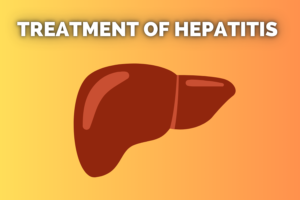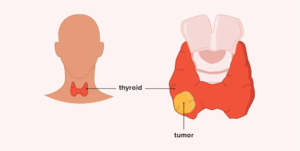Is Obesity A Risk Factor For Hernia?

We all know that obesity significantly contributes to your chances of developing diabetes and other potential health risks. However, the recent reports by the Centers for Disease Control show that obesity is also a potential risk factor for hernia.
Read on to learn more about hernia, its symptoms, risk factors, causes, and potential treatments.
What is Hernia?
A Hernia is often referred to as the bulging of a tissue or an organ through an abnormal opening. It is also defined as the knuckle of a tissue or an organ, or the protrusion of a loop through an abnormal opening. This common problem usually causes a localized bulge in the groin or abdomen. Although hernia can often be harmless, it can sometimes cause pain and bring discomfort.
It is important for you to know that an inguinal hernia is the most common type of hernia, and it usually occurs in the area where the skin crease on top-thighs joins the torso. There are many other forms of hernia, some of which are listed below.
- Umbilical Hernia – occurs through the belly button area (umbilicus).
- Femoral Hernia – bowel moves into the femoral canal and appears as a mass in the upper thigh.
- Paraumbilical Hernia – occurs right above or below the umbilicus.
- Epigastric Hernia – moves through the midline of the abdomen, right above the umbilicus.
- Lumbar Hernia – passes through any of the lumbar triangles.
- Incisional Hernia – follows the breakdown of muscle closure post the surgery.
- Obturator Hernia – passes through the obturator canal and causes pain in the inner thighs.
Risk factors For Hernia
It is natural for most hernias to gradually increase in size and remain the same size for a comparatively extended time period. They are at a greater risk of complications and do not impulsively heal, and therefore, require surgical intervention. Further listed are several predisposing risk factors for Hernia.
- Loss of elasticity and tissue strength.
- Increased intra abdominal pressure – constipation, obesity, chronic cough, heavy lifting, urinary obstruction, previous abdomen surgery, ascites.
- Consequent weakening of muscles and nerve damage.
- Residual embryological channels.
- Family history.
Incisional Hernia: Causes, Symptoms, and Complications
An incisional hernia is a type of hernia that commonly occurs at the surgical incisions, which are made from previous abdominal surgeries. Incisional Hernia basically occurs when the incision that has been made to treat an internal organ or tissues fails to heal with time. This type of hernia is very common in comparison to other types of hernia. It is important for you to know that approximately 35% of people who undergo abdominal surgery, suffer from an incisional hernia. This type of hernia is most likely to occur within 3 to 6 months after surgery. In most cases, incisional hernia occurs along the vertical incision, and it can happen even after years of surgery.
Causes
It is a well-known fact that an incisional hernia develops after an abdominal surgery. It can be formed as a result of the damaged abdominal muscle due to a surgical incision. This weakening of abdominal muscles can take place due to various reasons, diabetes being the predominant one, such as:
- Being obese or overweight
- Having a wound infection after the surgery
- Use of steroid supplements or medicines
- Participation in premature or excessive physical activities after surgery
- Pregnancy
- Having more than one surgery through the same incision
- Increased abdominal pressure
Symptoms
Any individual who is having an incisional hernia will experience a specific set of symptoms. Some of these common symptoms may include swelling, fever, and increased tissue pressure. Other symptoms of incisional hernia may include:
- Appearance of a bulging lump on the scar.
- Foul-smelling extracts from the incision.
- Bowel obstruction due to restricted blood circulation in the intestines.
- Jaundice, pain, and digestive disorders.
- Redness or red streaks at the incision site.
Complications
Incisional hernia can potentially lead to serious complications if not treated properly and on time. Some of the most common complications may include:
- Rigorous pain associated with constipation.
- Nausea
- Swelling and pain due to delayed diagnosis and treatment.
- Infection of internal tissue due to reduced blood circulation
Treatment For Incisional Hernia
It is important for you to know that an incisional hernia is unlikely to heal on its own, and it’s crucial to go for on-time surgical intervention. Incisional Hernia treatment is only possible through surgical intervention, two types of surgeries are:
- Open Hernia Repair – involves an incision at the hernia site.
- Laparoscopic Hernia Repair – involves multiple small cuts instead of one large cut at the hernia site.
An incisional hernia isn’t necessarily a cause for concern, and you can easily contact your healthcare provider to repair it alongside avoiding any further complications.






